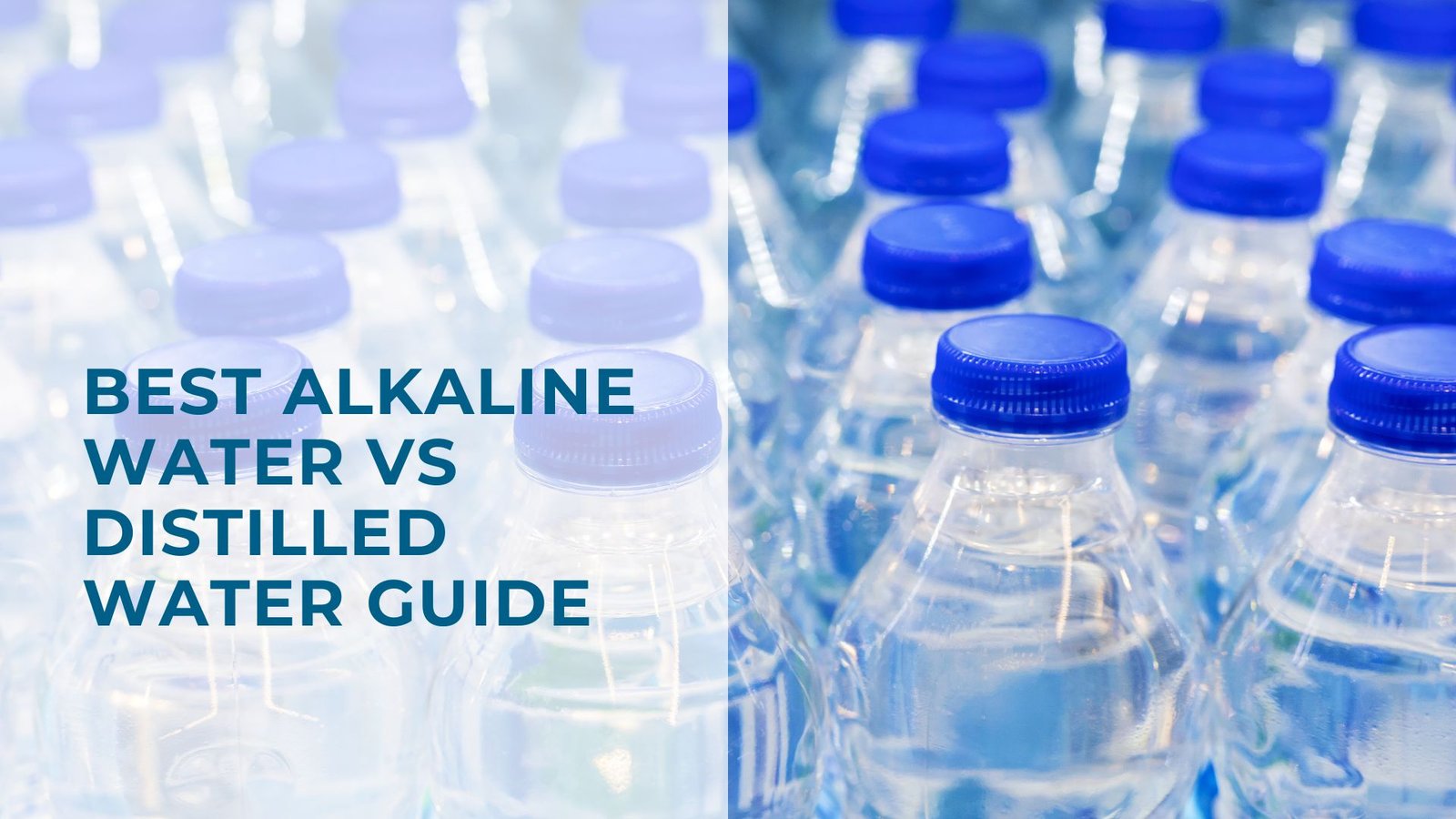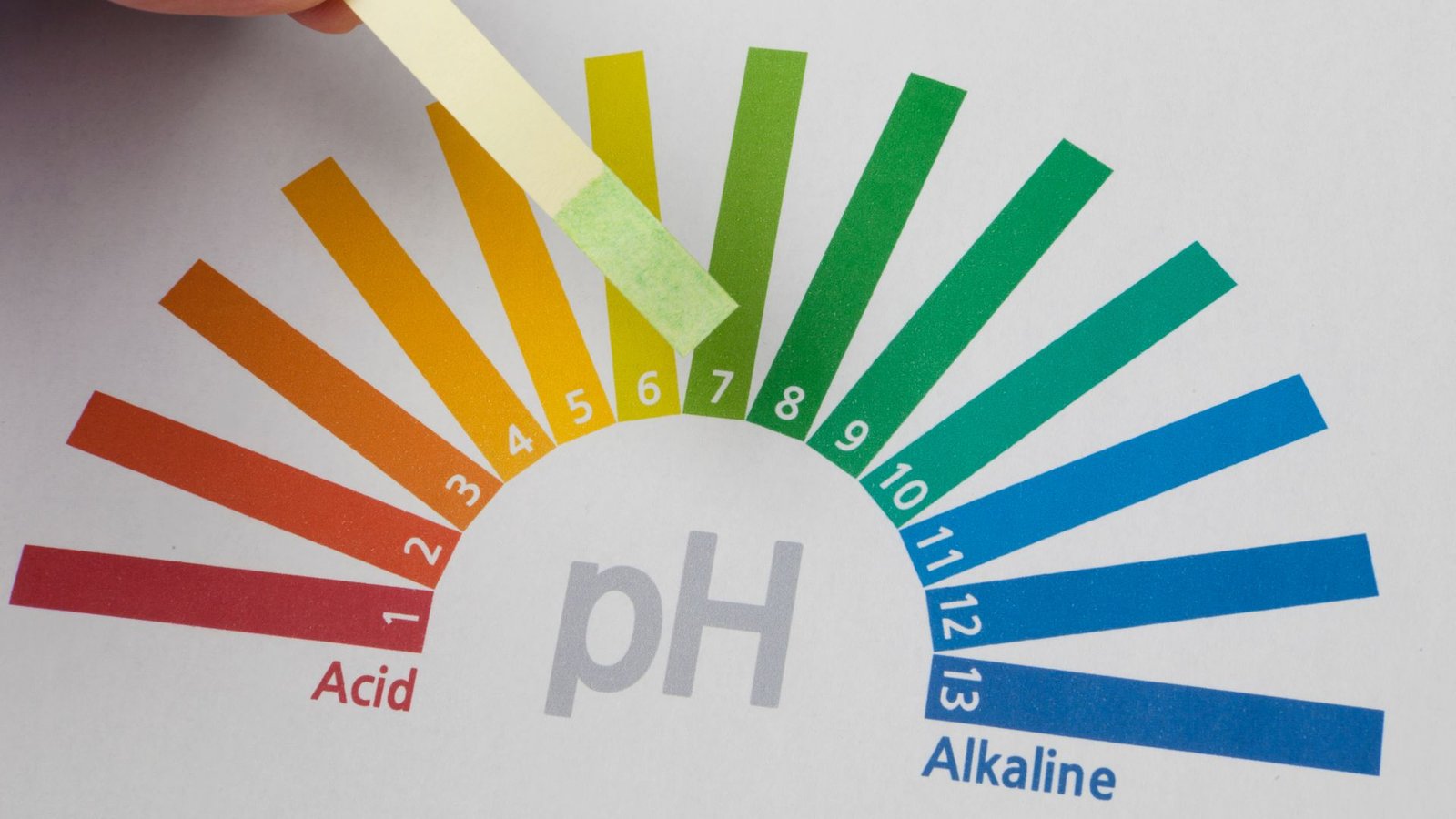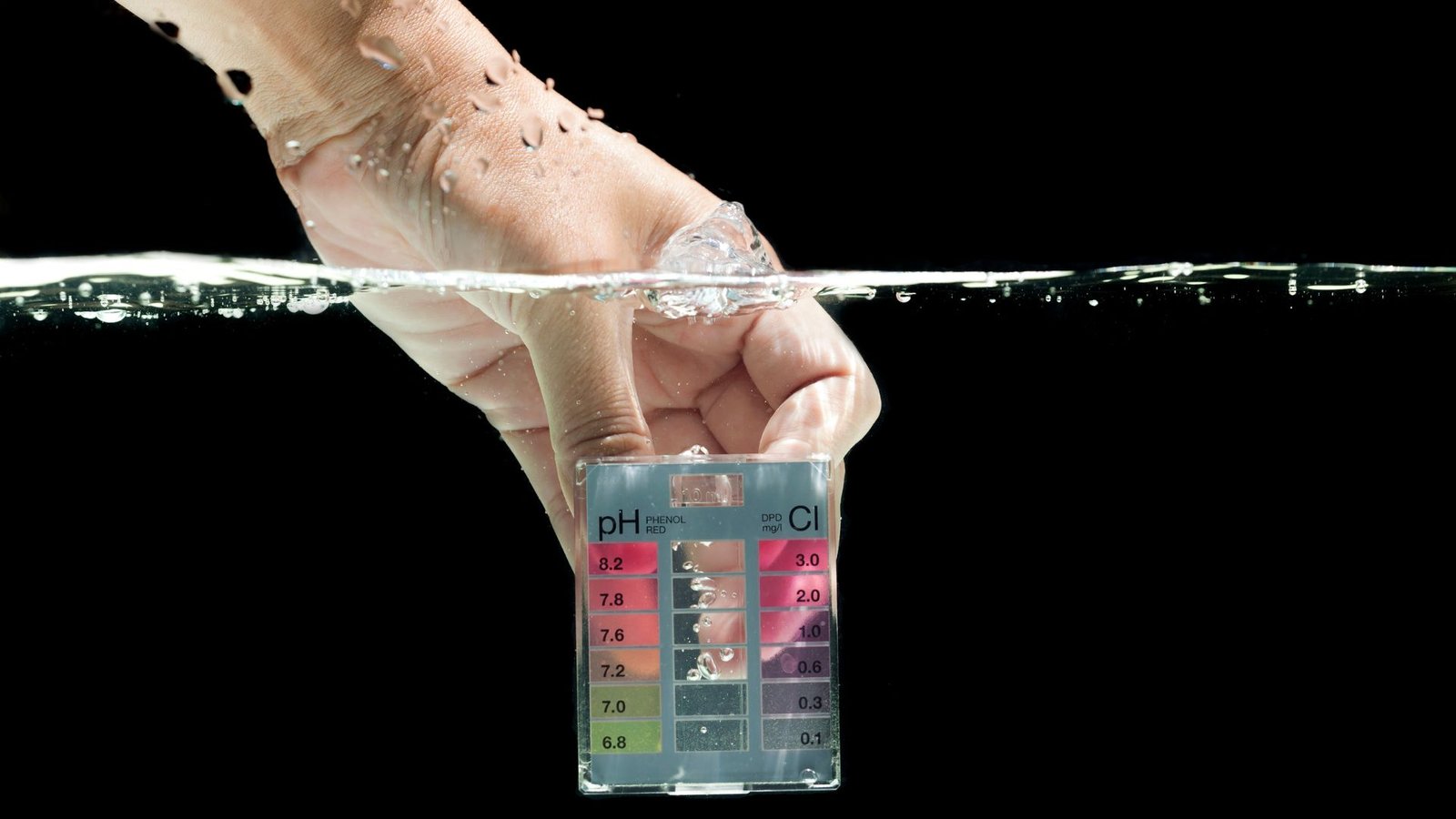Filteredwaterguide.com is supported by readers. If you purchase through referral links on our site, we make a commission at no extra cost to you. Learn more.

The world of purified water has grown increasingly complex, with grocery store shelves stocked with various options promising different benefits. Among these choices, alkaline water and distilled water stand out as popular alternatives to regular tap water. But what makes them different, and which one might be right for you?
We’ve thoroughly tested and researched both types of water to give you a clear understanding of their unique properties and benefits. Let’s dive into the key differences between alkaline and distilled water to help you make an informed choice for your hydration needs.
Through our extensive testing at Filtered Water Guide, we’ve discovered that while both alkaline and distilled water offer unique benefits, they achieve their results through fundamentally different processes.

In our water quality lab, we regularly measure water’s pH levels on a scale from 0 to 14. This scale helps us determine a liquid’s acidity or alkalinity, with 7 marking the neutral point. Alkaline water, by definition, has a pH level above 7. For homeowners wanting to test their water, we’ve thoroughly evaluated various home water testing kits available.
Our field research has shown fascinating natural examples of alkaline water formation. Spring water, for instance, becomes naturally alkaline as it flows through mineral-rich terrain. During this process, we’ve observed how water absorbs calcium and magnesium. While this mineral absorption can result in hard water, it’s also nature’s way of creating alkaline water.
Through our analysis of water treatment systems, we’ve identified two primary methods for producing alkaline drinking water:
Both methods produce high-quality drinking water. In our consumer research, we’ve found people choose alkaline water both for potential health benefits and what many describe as superior taste.
For more detailed information, consult our comprehensive alkaline water guide here.
Our laboratory testing confirms that distilled water ranks among the purest forms available. Unlike filtration, distillation involves heating water beyond its boiling point, capturing the vapor, and condensing it back into liquid form. This process effectively removes impurities and dissolved solids, typically achieving a neutral pH of 7.
However, our research has revealed an interesting phenomenon: distilled water often becomes slightly acidic after production. We’ve observed this occurs when carbon dioxide from the air dissolves into the water – a process that begins immediately upon exposure to air, even in sealed bottles once opened.
Through our evaluation of various distillation methods, we’ve found that vapor distillation offers superior results. This advanced technique pressurizes and further heats the water vapor, achieving exceptional purity levels. For those interested in home distillation, we recommend checking our detailed reviews of the best water distillers here.
Our comparative analysis has revealed several crucial distinctions:
These differences significantly impact each water type’s potential health effects, which we’ll explore in detail in the following sections.

Through our extensive testing and research, we’ve identified specific uses where each type of water excels. Let’s examine our findings.
Our research has revealed several practical applications for alkaline water:
For those interested in home alkaline water systems, explore our detailed reviews of best alkaline water machines here.
Our research team has examined numerous studies on alkaline water’s health effects. Here’s what we’ve found:
Based on our medical research, we’ve identified several key concerns:
Medical Attention Required: Metabolic alkalosis from excessive consumption requires immediate medical intervention Pre-existing Conditions: Our healthcare team strongly recommends consulting physicians before regular consumption, especially for those with:
Overconsumption Risks: We’ve documented cases of gastrointestinal disturbances from excessive intake
Our testing has identified several optimal uses for distilled water:
Through our research, we’ve identified several medical advantages:
Our research has identified several potential concerns:
After years of testing and analysis, our team has found that while both water types are generally safe for healthy individuals, they serve different purposes:
We recommend carefully considering your specific needs before investing in either a home water distiller or alkalizing system. Our team has found that personal health conditions, intended use, and taste preferences should guide your choice.